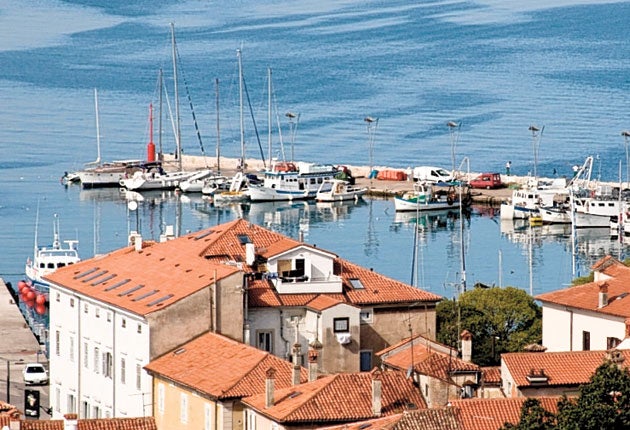Vote on border dispute leaves Slovenes divided

Nestled on the Slovenian coast, the town of Koper with its winding cobbled streets, Venetian mansions and Gothic cathedral, is a picturesque and unassuming place. But it is at the centre of a battle raging in the Balkans, which could bring down Slovenia's government and sour already prickly relations with Croatia.
The dispute over the maritime border between the two states dates back to the break-up of the former Yugoslavia in the early 1990s, when both countries laid claim to the Bay of Piran, a seven-square-mile expanse of the Adriatic Sea. Croatia wants the border to remain as it is, down the middle of the bay and touching Italian waters, but Slovenia – which is almost landlocked – says this continuously impedes its ships from gaining direct access to the high seas.
Tomorrow, Slovenes will vote in a referendum to decide whether to have the matter settled through international arbitration – with a panel of five judges including a Slovene and a Croat – making a binding ruling that would end the dispute once and for all.
Recent polls show the public is split 50-50. In the capital, Ljubljana, a group of students said they would vote yes "just to get any problem off Slovenia's back" and two smartly dressed elderly ladies, sipping coffee and munching cake at the Hotel Slon, were of much the same opinion. However, 53-year-old Bostjan Hloverz was more sceptical. "Those in power are washing their hands," he said. "It's not a small thing to let foreigners decide once and for all about our future."
Others are critical of the centre-left government for spending €4.3m on the ballot at a time of economic crisis across Europe. "We're counting every euro cent now," said retired teacher Antonela Remajn. "How can they spend so loosely at a time like this?"
The Bay of Piran, shared with Croatia and Italy, is seen as the gateway for goods into central Europe, to Slovakia, Poland, Hungary, the Czech Republic and Austria. There are frequent accusations of Croatian customs officers boarding Slovene ships and intimidating crews as they cross through foreign waters.
"Koper is the link between the Mediterranean and central Europe. Croats see it as a rival for their port of Rijeka," explained former foreign minister Dimitrij Rupel in an interview.
Slovenia, which has been a member of the EU for six years, blocked Croatia's path to joining the 27-member club in 2008 and again in 2009 over the maritime demarcation issue. Last autumn, the two sides agreed to the international arbitration plan, but while the Croatian parliament signed off, the Slovenian government decided to give the public the final say.
The main opposition party has called on Slovenia to reject the deal, calling it "capitulation" and evidence of a "servile mentality".
A "no" vote could topple the centre-left government. Prime Minister Borut Pahor has hinted he would resign if the vote went the wrong way.
But Foreign Minister Samuel Zbogar dismissed such speculation. "We don't want to link the destiny of the government with the destiny of the agreement," he told The Independent. "We want people, when they go to the booth, to just consider the agreement itself, about solving the problems with Croatia once and for all."
The referendum is being closely followed by Brussels watchers. The European Stability Initiative said: "If Slovenians vote 'no', it will be a godsend to opponents of EU enlargement, playing to every Balkan stereotype. If even Slovenia and Croatia, two traditional allies with no history of conflict, cannot resolve their disagreements, what hope is there for the rest of the region?"
Join our commenting forum
Join thought-provoking conversations, follow other Independent readers and see their replies
Comments